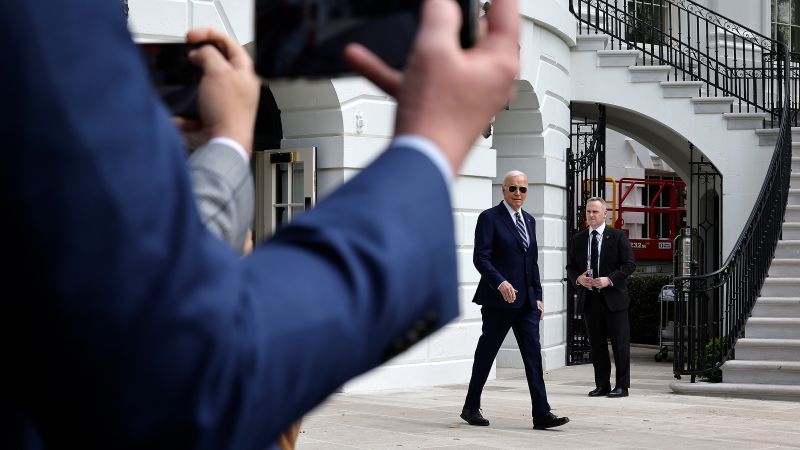President Joe Biden is facing a complex situation as protests and unrest spread from coast to coast in America. He takes a strong stand against lawlessness and antisemitism but also respects the right to protest, even when directed at his policies towards Israel. Simultaneously, he is involved in sensitive diplomatic efforts to secure the release of hostages in Gaza, hoping for a temporary pause in the fighting to ease tensions both at home and abroad. The unique challenges he faces demand strong leadership while balancing empathy, posing a dilemma for his administration.
The Biden campaign closely monitors the unfolding protests, especially in key battleground states, recognizing the potential political consequences of his administration’s Israel policy. Despite pressure, Biden has refrained from making extensive public remarks on the protests, focusing instead on condemning antisemitism and emphasizing the importance of combatting hate speech. As images of disorder and unrest circulate, concerns grow over the impact on campuses and cities across the country, prompting criticism from political rivals who accuse Biden of remaining silent.
While the administration condemns the tactics of some protesters, they stress that policing decisions are left to individual universities and local officials, avoiding potential escalation or comparisons to past tragic events. Potential deployment of the National Guard remains a sensitive issue, with memories of the deadly Kent State University shooting in 1970 serving as a cautionary tale. The spreading protests have political ramifications, with concerns that Biden may be unwelcome on college campuses in the fall if the unrest continues.
As the president prepares for upcoming events and speeches, including commencement addresses at military and historically Black colleges, concerns arise that protests may disrupt these events. Biden’s past views on antiwar protests during the 1960s reflect a distance from campus demonstrations, indicating a nuanced relationship with protest movements. The current convergence of foreign policy challenges with domestic unrest within his own coalition highlights the complex and delicate balance Biden must navigate to address issues both at home and abroad.
While Biden’s team acknowledges the potential negative impact of televised protests on his re-election bid, they believe other issues such as the economy and abortion will be more decisive factors for voters, including young Americans. Student activists and organizers express dissatisfaction with coercive voting tactics and emphasize the need for politicians to reflect their values. Despite ongoing tensions related to Biden’s handling of the Gaza conflict, it remains uncertain whether this issue will remain a primary concern come November, underscoring the evolving nature of political dynamics surrounding protests and unrest. Biden faces challenges reminiscent of the Vietnam era, with the specter of protest votes within his own party adding further complexity to his political landscape.













